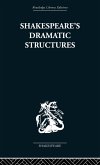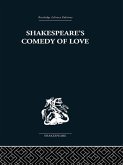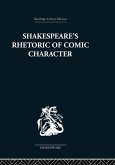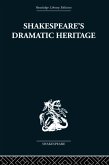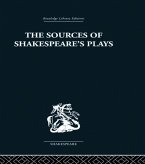This collection of essays focuses on the ways in which our society 'processes' Shakespeare and the purposes for which this seems to be done. The case is made by examining the work of four highly influential critics: A C Bradley, Walter Raleigh, T S Eliot and John Dover Wilson.
Terence Hawkes asks whether, beyond the readings to which the plays may be subjected, there lies any final, authoritative or essential meaning to which we can ultimately turn, concluding that jazz music offers the most fruitful model for twentieth-century criticism.
Dieser Download kann aus rechtlichen Gründen nur mit Rechnungsadresse in A, B, BG, CY, CZ, D, DK, EW, E, FIN, F, GR, HR, H, IRL, I, LT, L, LR, M, NL, PL, P, R, S, SLO, SK ausgeliefert werden.




